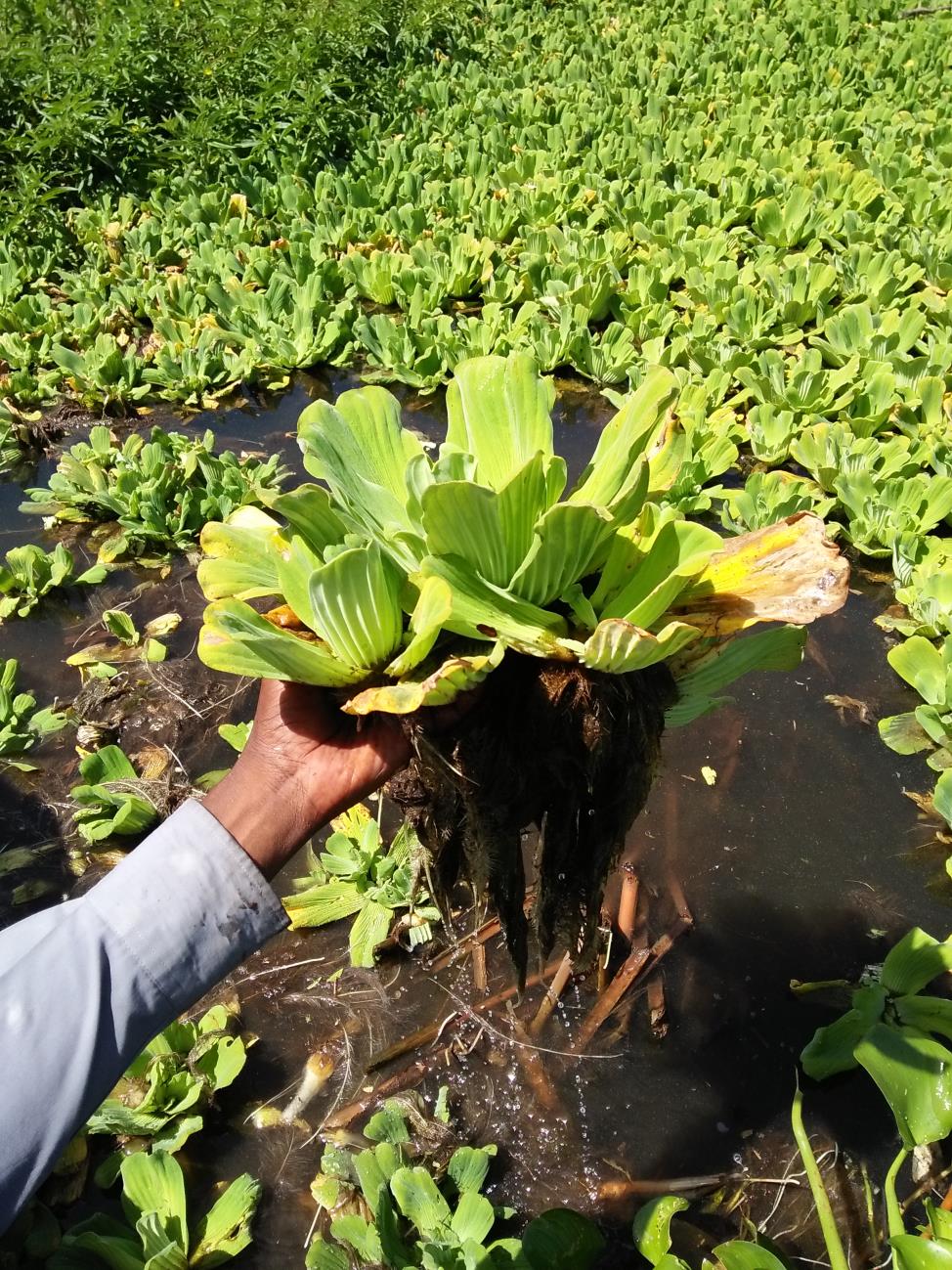Human beings have dietary requirements for omega-3 (n-3) long-chain polyunsaturated fatty acids (LC-PUFA) especially eicosapentaenoic (EPA) and docosahexaenoic (DHA) because they cannot be synthesised in the body.

Macrophytes from Lake Victoria
They play several essential roles including proper development of brain and eye as well as beneficial effects in cardiovascular and neurological diseases and some cancers. Human therefore rely on fish and seafood which are rich source in such nutrients. However, intake of these fatty acids in many developing countries including Tanzania is way below the minimum recommended intake daily intake of up to 500 mg. This is partly because most consumed fish such as Nile tilapia in Africa and Carp in India has low content of omega-3.
Nevertheless, diet formulations with high content of fish meal and fish oil have been proved to significantly enhance content of omega-3. However, fish meal and fish oil are finite and limited resource making their prices in recent times unsustainably expensive thus need for alternatives.
Thus, selected species of aquatic macrophytes (freshwater and marine) and microbes known to have relatively high content of those fatty acids will be evaluated as feed ingredients in tilapia and carps diets. Their choice is based on sustainability as they do not compete with existing human food resources or animal feedstuffs.

This research effort is led by Professor Douglas Tocher of University of Stirling in United Kingdom and other researchers from United Kingdom (Scottish Association for Marine Science), India (Delhi University, Goa University, Kerala University of Fisheries and Ocean Studies and Delhi Technical University), Tanzania (Sokoine University of Agriculture) and Kenya (Machakos University, Aquaculture Association of Kenya, Ministry of Agriculture. Dr.Nazael A.Madalla, a fish nutritionist at Department of Animal,Acquaculture and Range Sciences in SUA is a principal investigator in Tanzania.
Fund is provided by Biotechnology and Biological Sciences Research Council (BBSRC) - Newton Fund partnership. The project is also known by its acronym SNIPH which stands for "Sustainable New Ingredients to Promote Health".
For more details about the project objectives, work packages, and outcomes please Click here.




